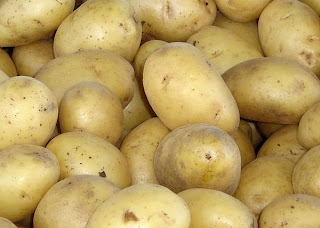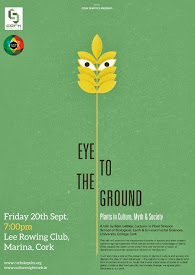BASF Moves Plant Biotech Jobs to America
The global biotech and chemical company BASF is to withdraw from Europe and concentrate its plant biotechnology business on North and South America. 140 jobs in Europe will go.
Just when science, technology and biotechnology, in particular, have the capacity to create jobs, build confidence in economies and promote an economic recovery, Europe now risks becoming known for an anti-science agenda.
The company said today that it will halt development and commercialisation of all products targeted solely at the European market because of "a lack of acceptance for this technology" from the majority of consumers, farmers and politicians.
BASF say they are "convinced that plant biotechnology is a key technology for the 21st century" but at this time the "conditions for cultivation of genetically modified crops in Europe are unfavourable".
The move will stop development on Europe-targeted crops such as Amflora, a genetically modified potato variety which provides easy to extract starch for industry. The company will also halt work on its Fortuna potato variety, bred to be resistant to late blight, Phytophthora infestans. BASF had applied for approval from the EU for commercial cultivation of Fortuna late last year. The variety had two resistance genes inserted from a wild relative found in South America.
Despite ceasing development of other such products, BASF have said they will continue with the regulatory approval process already in train.
Greenpeace have welcomed the move claiming that "Europeans don't want GM crops, and for good reason".
Marco Contiero, Greenpeace's agriculture policy director said that it wasn't just health concerns that worried EU consumers; "GM crops go hand in glove with factory farming, pesticide use, pest resistance and disappointing long-term yields".
Today's development sees a company with European origins having to move much of its research and development to the Americas due to continuous delaying and buck-passing when it comes to GM regulations in Europe.
This has created an atmosphere where even the research and development of GM crops, for one company at least, has become impossible.
Just when science, technology and biotechnology, in particular, have the capacity to create jobs, build confidence in economies and promote an economic recovery, Europe now risks becoming known for an anti-science agenda.
The company said today that it will halt development and commercialisation of all products targeted solely at the European market because of "a lack of acceptance for this technology" from the majority of consumers, farmers and politicians.
BASF say they are "convinced that plant biotechnology is a key technology for the 21st century" but at this time the "conditions for cultivation of genetically modified crops in Europe are unfavourable".
The move will stop development on Europe-targeted crops such as Amflora, a genetically modified potato variety which provides easy to extract starch for industry. The company will also halt work on its Fortuna potato variety, bred to be resistant to late blight, Phytophthora infestans. BASF had applied for approval from the EU for commercial cultivation of Fortuna late last year. The variety had two resistance genes inserted from a wild relative found in South America.
Despite ceasing development of other such products, BASF have said they will continue with the regulatory approval process already in train.
Greenpeace have welcomed the move claiming that "Europeans don't want GM crops, and for good reason".
Marco Contiero, Greenpeace's agriculture policy director said that it wasn't just health concerns that worried EU consumers; "GM crops go hand in glove with factory farming, pesticide use, pest resistance and disappointing long-term yields".
Today's development sees a company with European origins having to move much of its research and development to the Americas due to continuous delaying and buck-passing when it comes to GM regulations in Europe.
This has created an atmosphere where even the research and development of GM crops, for one company at least, has become impossible.



















